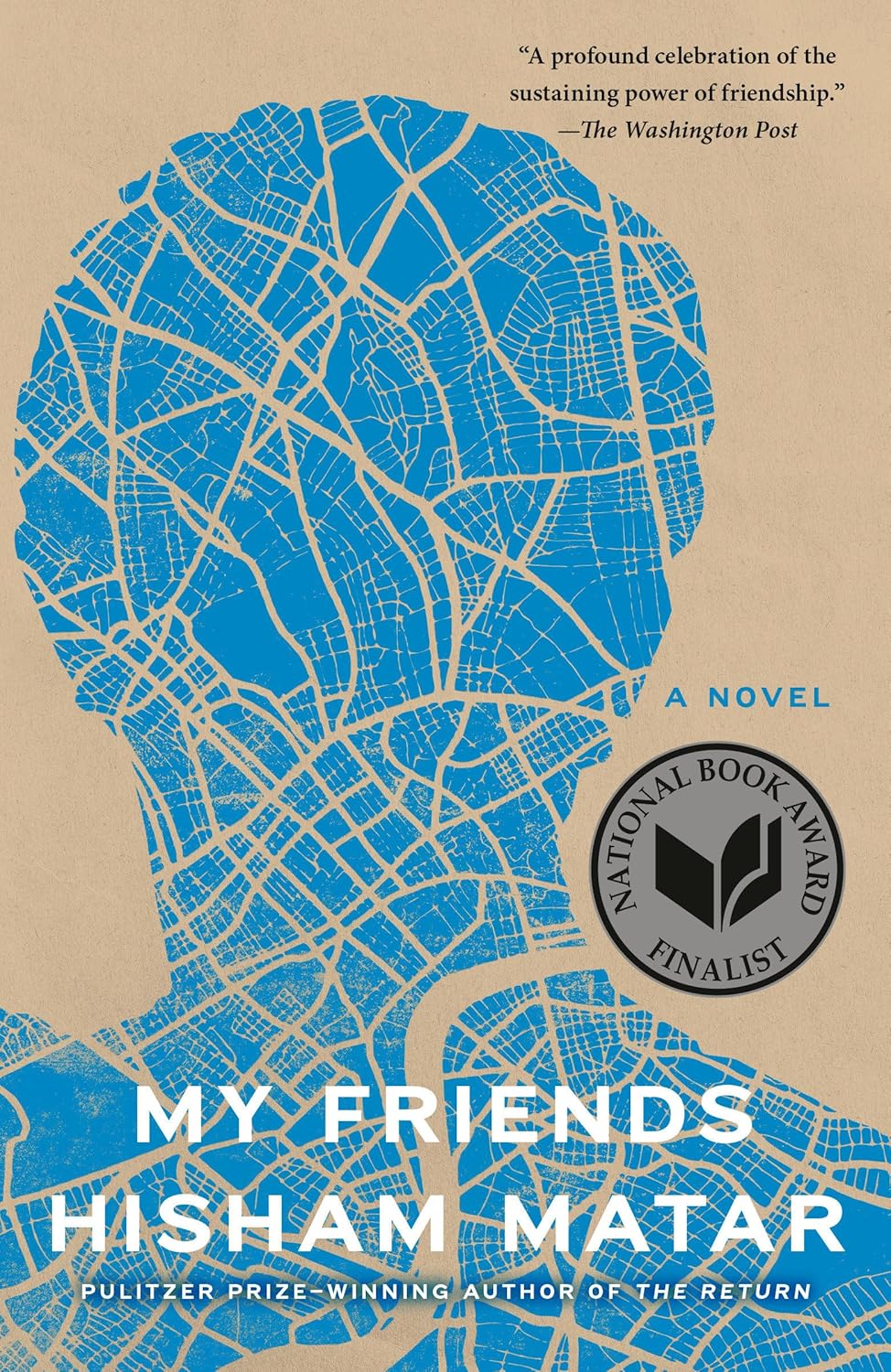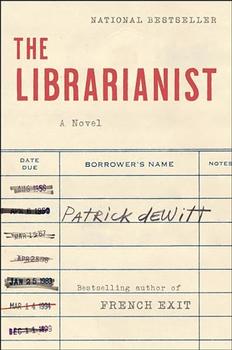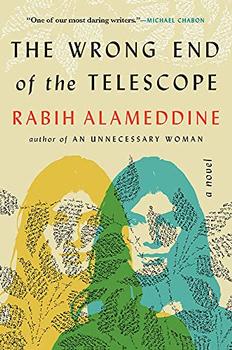Summary | Excerpt | Reviews | Beyond the book | Read-Alikes | Genres & Themes | Author Bio

A Novel
by Hisham MatarThe title of Hisham Matar's My Friends takes on affectionate but mournful tones as its story unfolds. For the narrator, Khaled, friendships have been both fundamentally necessary and painful. When we first meet him, he has just said goodbye to his friend Hosam Zowa, an author whose work he discovered as a teenager and later met in Paris when the two were exiled from Libya in the era of the repressive Qaddafi regime. In the present, opening timeline, some years after the Libyan Revolution of 2011, Hosam is moving to the US with his wife and child, and Khaled senses their relationship ending. From here, he begins to tell his life story, irrevocably marked by his presence at the 1984 shooting of anti-Qaddafi protesters from the Libyan embassy in London, where as a young man studying literature abroad he was wounded and possibly put on the regime's radar, making it unsafe for him to return to his homeland for the foreseeable future.
Khaled's two closest friends during the decades following the shooting, Hosam and Mustafa (a fellow protester also injured at the embassy), have suffered in ways similar to him but are more eager than he to hit back at the world — both end up participating in the eventual overthrow of Qaddafi. Khaled has no desire to see military action, and the trauma he has experienced seems to separate him from conventional life, leaving him to lose himself in books and to foster meaningful but flexible connections outside the framework of marriage or traditional family. "[V]iolence demands translation," he observes, "I will never have the words to explain what it is like to be shot, to lose the ability to return home or to give up on everything I expected my life to be, or why it felt as though I had died that day." And as relationships between friends, unlike romantic or familial ones, are arguably the most inherently unconventional, the most undefined and open to reinvention but the most difficult in which to find security, it seems only natural that friendships form the stage on which the dramas of his existence play out.
Khaled finds a kindred spirit in a professor at the University of Edinburgh who acts as a mentor figure to him and provides material assistance after the shooting, fabricating an employment reference and offering financial support. His school friend Rana helps him manage the details of safely beginning a new life. Hannah, an off-and-on lover, is the first new person to whom he tells the truth about his injury, and they maintain a bond over time. All these characters have their own lives apart from Khaled, but together they give him a structure that allows him to find himself again, to begin to grow something out of the nothing he was left with.
Still, reminders of a somber reality lie around every corner. He attempts to speak to family members in code during his rare phone calls, envisioning a scrutinizing government official listening in, and considers the difficult choices made by other Libyans abroad — writers, intellectuals, and public figures — such as Mohammed Mustafa Ramadan, a real-life journalist and critic of Qaddafi who worked for the BBC and was murdered in London by men suspected to be associated with the regime. In Matar's novel, Khaled became acquainted with Hosam's work when Ramadan read one of his stories on the air in place of the news.
Khaled meets Hosam years later by near-magical happenstance, and Matar excels at crafting these kinds of fragile, ethereal moments — calling attention to how life thrives on coincidence and intuition, and revealing the wonder of a world connected by literature and other media even (or especially) as art and communication is suppressed. The second half of the book isn't quite as effective as the first in this vein, and the characters' centrality to key historical events begins to feel artificial and unnecessary. But overall, My Friends is confident in how it hews close to its protagonist's inner landscape even as it pulls in global concerns, in how it takes unexpected turns past and straight through history.
As Khaled endeavors to tell the story of his friendship with Hosam, a source of heartache and a loose throughline of his narrative, he reveals much about himself alone and the community of people around him, showing the small, delicate ways he has made an adequate place for himself among them. His decisions are not always comprehensible to friends and family, but his presence seems to be as key to others as theirs to him. Hosam will eventually leave London, but only after Khaled helps him build a life there that makes another life possible.
Matar's novel is a quietly humming beast, a low-flying glide over a specific cross-section of contemporary history, but also a bittersweet exploration of how it feels to have vital, formative experiences of friendship, and then to outgrow one's friends or to be outgrown by them in moments that are likewise defining. "My friends never stopped wanting a different life," Khaled reflects at one point, after speaking to his mother on the phone, "But I have managed, Mother, not to want a different life most of the time and that is some achievement."
![]() This review was originally published in The BookBrowse Review in December 2024, and has been updated for the
January 2025 edition.
Click here to go to this issue.
This review was originally published in The BookBrowse Review in December 2024, and has been updated for the
January 2025 edition.
Click here to go to this issue.

If you liked My Friends, try these:

by Patrick deWitt
Published 2024
From bestselling and award-winning author Patrick deWitt comes the story of Bob Comet, a man who has lived his life through and for literature, unaware that his own experience is a poignant and affecting narrative in itself.

The Wrong End of the Telescope
by Rabih Alameddine
Published 2022
By National Book Award and the National Book Critics' Circle Award finalist for An Unnecessary Woman, Rabih Alameddine, comes a transporting new novel about an Arab American trans woman's journey among Syrian refugees on Lesbos island.
Your guide toexceptional books
BookBrowse seeks out and recommends the best in contemporary fiction and nonfiction—books that not only engage and entertain but also deepen our understanding of ourselves and the world around us.